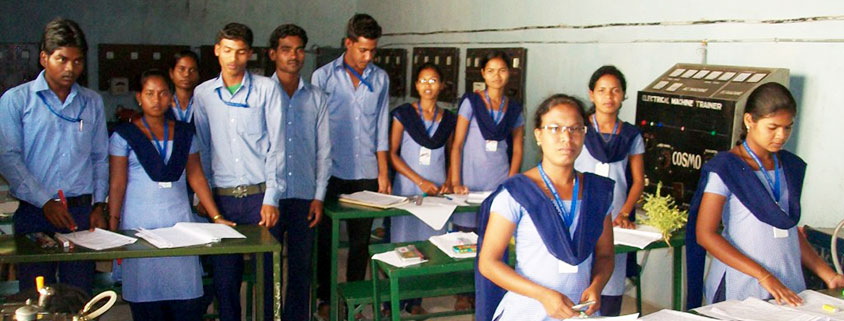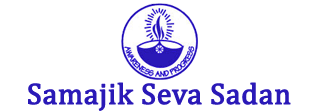
ADIVASI SCHOOLS & HOSTELS

Assert Quality Education, Enabling Environment in Government Adivasi Hostel & Adivasi Residential Schools & Implementation of PESA
| Title of the Project | Assert Quality Education, Enabling Environment in Adivasi Hostel and Adivasi Residential Schools run by Government and Implementation of PESA which will prove Adivasi Self Rule as per the Traditions and Culture of Indigenous Peoples of Odisha |
| Duration of the Project | From: 01/01/2014 to 31/12/2015 |
| Project Area | Subdega Block in Sundargarh District, Odisha, India |
EDUCATION DEVELOPMENT FOR SCHEDULED CASTES AND SCHEDULED TRIBES
The percentage of literacy among the STs and SCs is 52.24% and 69.02% as against the general literacy level of 72.87 % as per 2011 census.
Odisha was the pioneer in setting of special type of Residential Educational Institutions for their educational development.
In tribal areas Government school teachers i.e. 85% nontribal teachers seldom visit their schools, for that no quality education is imparted. Thus Adivasies remain uneducated and can be easily exploited at different levels.
To identify the problem of Indigenous women and community and empower them for their human rights for a dignified life focusing on Girl Child Education. The indigenous people are called as Scheduled Tribe but they are still away from the schemes, welfare activities and the reservation in employment of the Government.
- Conducting study of residential schools and prepares a report for advocacy:-
A study of residential schools conducted to access the implementation of right to education. The study covered the area of infrastructure, teachers training, SMC Training, conduct of teachers and hostel staff and facilities in school and hostel etc. Based on the study a report was prepared for further advocacy programme.
We observed from the implemented activities that now the residential girl’s hostels are running by the Govt. but still the girls are not getting proper facility.
The reason are given below:-
In case of education they are not getting quality education it is only because of the teachers are not coming to school regularly. Even when they are coming to school, they are not concentrating toward the quality education.
The Adivasi peoples are not aware about the govt. schemes and programs in detail, in fact the teachers are to give information, and they do not give because if people come to know these provisions they will demand for it.
- GP level Workshop on right to Education:-
4 Gram Panchayat (GP) level workshops were held at different villages of Subdega Block in Sundargarh.
This was an opportunity for the village people to come together and discuss about the education of their children. After the workshops, people have become enthusiastic to give time for their children’s education. The School Management Committee members became active and started to visit schools to know what is happening their! - Block level workshop on Right to Education:-
We found out that the infrastructure of many primary schools is worse. For education the infrastructure and the environment should be in good condition, so that the student will come to school regularly. Due to bad infrastructure the children are facing the problem in rainy season. In rainy season the school remains closed for many days. So it creates obstacles in their study career.
A Block level workshop was organized for the PRI members and Social Watch Team members on Right to Education Act at Subdega. Different issues related to education were identified and discussed like untrained teachers, Untrained SMC members, poor management of staffs of residential schools, poor infrastructure of residential schools. A memorandum was prepared and sent to collector and District Inspector of Schools. - District level workshop on Right to Education:-
The Sundargarh district level “Shiksha” means Education was organized on 1st December 2014 at Madri Kalo Bhawan, Sundargarh. A total 0f 147 participants including children, teachers, SMC members, PRI members, PTA/MTA members, members of civil society and educationists participated in the programme. The objective was to indentify specific problems/ grievances in school education and final local solutions for them as well a means of advocacy to the District and State. In this we came to know that there are many more problems in the education system of the school. Specific problem we have identified the relation in between the teacher and the students are loosing. The teachers are not coming to school regularly so the interest of the students are becoming less towards schooling and also the poor quality teaching by the teacher. - Meeting on “Government Provisions and Schemes for children” for School Management Committee members ( No expenditure was incurred by the project)
Parent, teachers and students meeting with School Management Committee (SMC) was organized in Gaibira middle school. It was to assess the education in the school and the management of hostel Students being present, all spoke the truth. The parents explained about the complaints the students make, both on teaching and food in the hostel. School Management committee Interacted with both the teachers and students. Then a session was held on the provisions and different scheme Govt. has for schools and students. - “Right to Education on Chariot” taken out in 4 GPs of Subdega Block in three days time:-
In order to aware the public on the Right to Education and all the provisions in it for the quality education that the students can avail and the present problems faced by the public was assessed by the public and gave written complains to the Authorities concerned to take immediate remedial measures for quality Education in all the Government school.
We have covered 4 GPs of Subdega Block through a Tata Magic Jeep was decorated as a Chariot with Posters and Banners depicting different provisions of the Act was taken out from in front of Subdega Hospital and went to Jamuna Gram Panchayat where it cover 7 villages with meeting with people, informed about the provisions for their children and collect complains/memorandum written from the people to be given to the Education Department. On the 2nd day the Chariot went to Kurumkel Gram Panchayat and finally in 3rd day it went to Damkuda Gram Panchayat and Subdega Gram Panchayat. So totally we have covered 25 no. of villages.
The response was very aggressive, encouraging and also authenticated by the parents. Hundreds of people signed the memorandum and collect a no. of complains written by the public regarding the system of the schools that are managed so poorly, irregularly of teachers, the low standard of education etc and demanding for quality teaching in schools, better facility in residential schools and in Girl’s Hostels.
Results Achieved
- Added active support from alliances of all concerned will strengthen the cause of Adivasi women to access their rights and entitlements, at the same time violence against the women will reduce As our expectation level we have supported the Indigenous women and the school girls for their human right like quality education to be provided by the teacher. Though there are news of girls being exploited by teachers in other parts of Odisha, no such incident has taken place in our project area-a great achievement of our educational effort to the public and teacher themselves. We have strengthened the Adivasi women to access their right & entitlements through different campaign especially the village meetings. One major advocacy result is that under Forest Right Act the land under the occupation of Adivasi people, is issued in the name of Wife and Husband. For the first time, Women got land entitlement in their name.
- The entire Adivasi population will rise in demand of fulfilling the UN Declarations on Adivasi child rights.As per UN declarations on Adivasi child rights, and the Law made by Indian Parliament, they have succeeded in making the teachers providing better facilities to their child’s education, the hostel girls are better protected by the Warden and have became free from harassment by the male teachers. First time the School Management Committee called for meeting of Teachers with parents and students to sort out the problem of teaching in school and hostel facilities.
- Number of cases identified, documented addressed by the community and women pressure group.
Poor accommodation as well as poor quality food was identified in residential schools. The School Management Committee (SMC) was informed, who took remedial measures by reporting to the District Inspector (DI) of schools. In the memorandum to the Governor through Collector, other cases such as no cot for children to sleep, no common room for studies or for dining and no compound wall for the hostel building etc. - Number of cases addressed by the students and parents against RTE and child rights.
8 Cases of RTE and Child rights identified and addressed in the Block and District level workshop. - No. of memorandum prepared in campaign and submitted, dialogue conducted and coverage in Media.
Memorandum submitted to the governor, Chief Minister, Education Minister through the District Magistrate (Collector) The reports were sent to the local media publish in the news papers.
Testimonials of People Involved In The Advocacy Plan
“It was a revelation that so much of facilities are given by Government but it is not disseminated to us, though we are the SMC members. What to say about the other parents who are very illiterate and do not give so much importance to the education of their children. If the SMC members of all the schools could be trained, they could stand together and demand for justice for Adivasi children”.
The SMC member of Gaibira School Ms. Sujata says:
“When I went along with the Advocacy team lead by Ms. Veronica, I realized the power of Adivasi women. We boldly demanded to the Collector to ask the DI of schools to closely monitor the Education in the schools especially that of schools where Majority children are of Adivasies, Adivasi residential schools and Adivasi Girls Hostels”.
The Sarpanch (Panchayat President) of Damkuda Ms. Sushma Tete says:
Location
At Banjhikusum
P.O Mahisapat, Dist Dhenkanal
Pin-759013, Odisha, India
+91-9437864665
